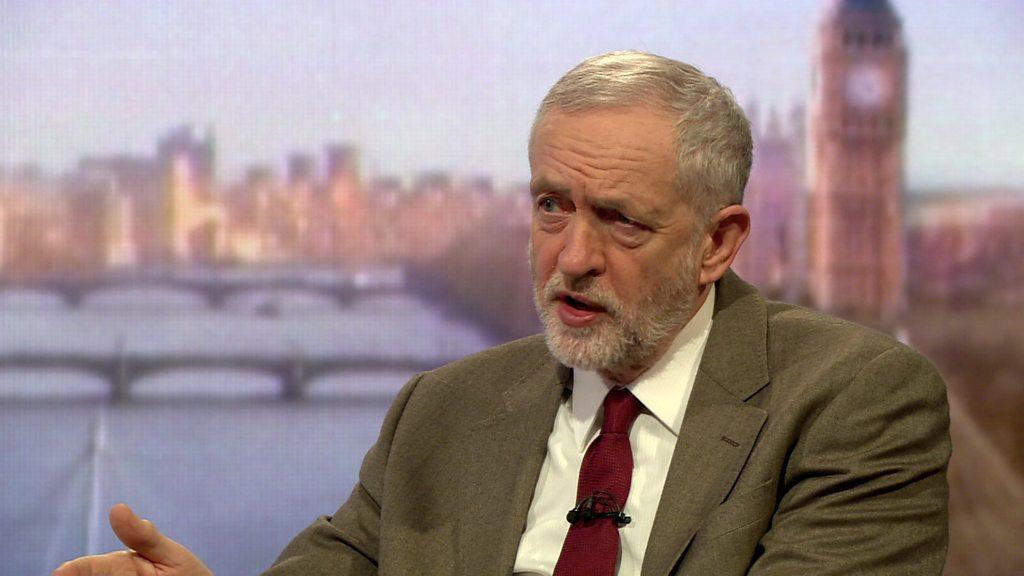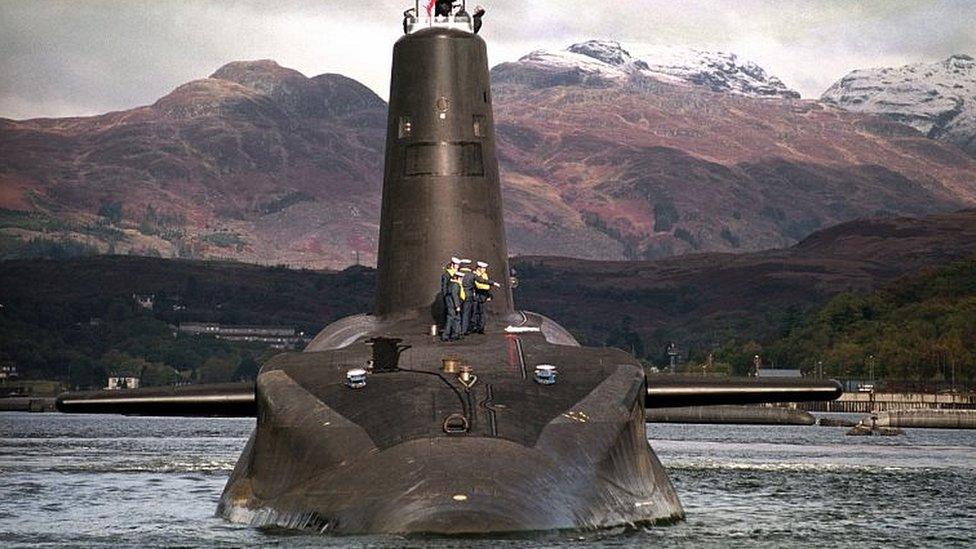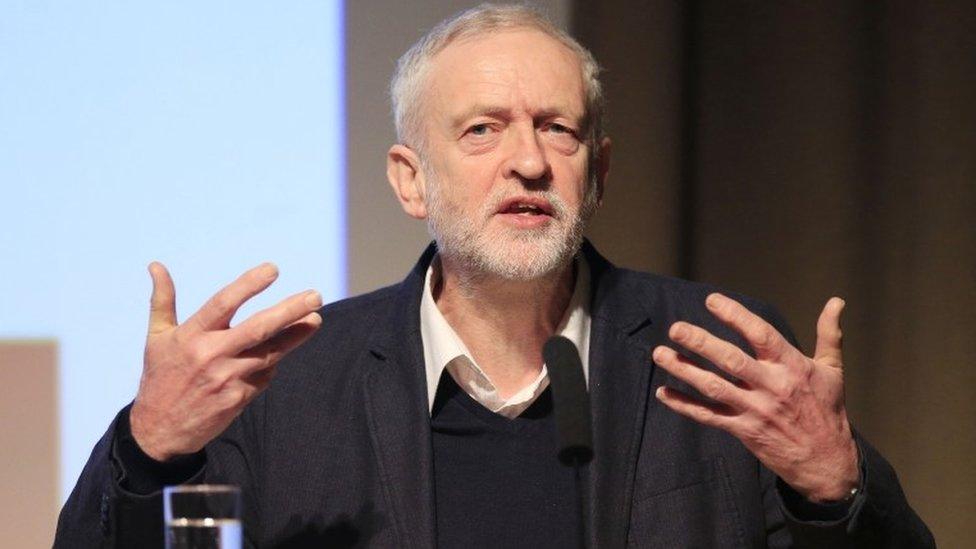Jeremy Corbyn: Ban on sympathy strike ban should be lifted
- Published
Labour 'would change strike rules'
A ban on sympathy strikes by unions not directly involved in a dispute would be repealed under a Labour government, the party's leader Jeremy Corbyn has said.
It was suggested to him, on the BBC's Andrew Marr Show, that the current action by junior doctors would be more effective if the ban was ended.
"Sympathy action is legal in most other countries, it should also be legal here," Mr Corbyn said.
The Tories said the remarks show Labour is a "threat" to economic security.
Asked if he would end the ban on secondary strike action - also known as solidarity action - brought in by Margaret Thatcher's Conservative government in 1990, Mr Corbyn said: "Yes, of course".
He added: "Nobody willingly goes on strike. They go on strike as an ultimate weapon... So let's look at the causes of people being upset rather than the symptoms."
Reaction to Sunday's political interviews
Mr Corbyn also did not rule out allowing the return of flying pickets - where workers travels to support others' action - which were first used in the coal disputes of the 1970s.
He said: "It was merely people moving around showing support during a very difficult industrial dispute."
Referring to the walkout by junior doctors in their dispute with the government about a new contract, Mr Corbyn said they "would be better served if we had a health secretary who was prepared to get involved, meet them and look for a solution".
There were calls for the laws on secondary strikes to be repealed in 2005 while Labour was in power, amid action by baggage handlers at Heathrow Airport in support of sacked staff at the catering firm Gate Gourmet. However, the government then ruled out the prospect of lifting the ban.
The issue re-emerged three years later but then Prime Minister Gordon Brown said there would be "no return" to past laws.
- Published17 January 2016

- Published17 January 2016

- Published16 January 2016
